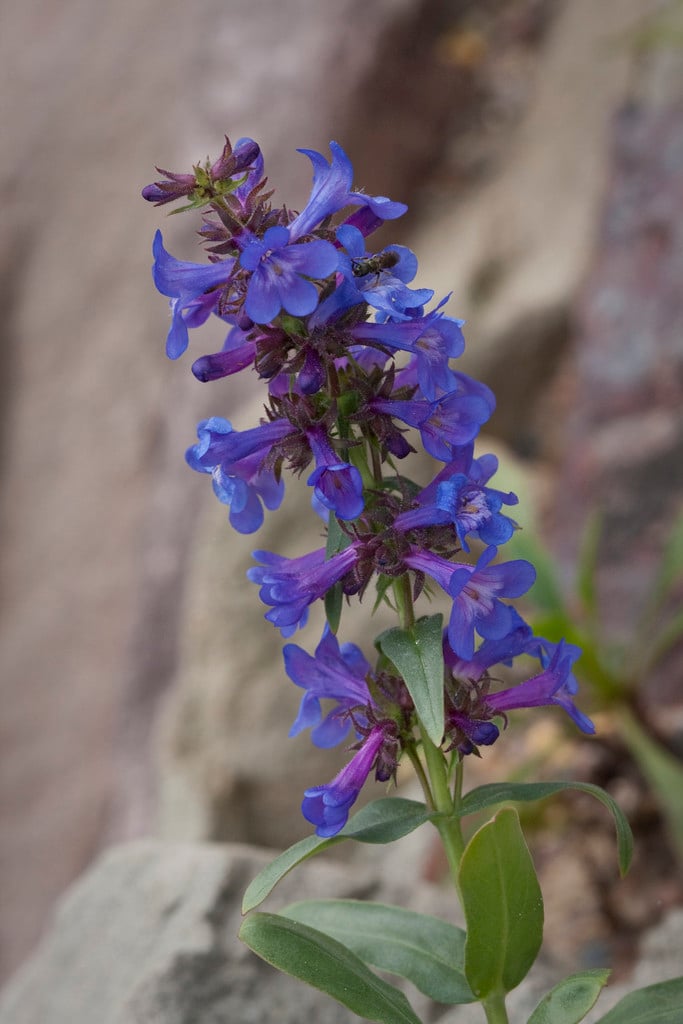Penstemon humilis
low beard-tongue
A low-growing, semi-evergreen perennial forming basal rosettes of greyish-green leaves from which arise erect stems to 35cm tall bearing whorls of narrowly funnel-shaped blue to purple flowers from late spring into summer

Size
Ultimate height
0.1–0.5 metresTime to ultimate height
2–5 yearsUltimate spread
0.1–0.5 metresGrowing conditions
Moisture
Well–drained, Moist but well–drainedpH
Acid, Alkaline, NeutralColour & scent
| Stem | Flower | Foliage | Fruit | |
| Spring | Blue Purple | Green Grey Silver | ||
|---|---|---|---|---|
| Summer | Blue Purple | Green Grey Silver | ||
| Autumn | Green Grey Silver | |||
| Winter | Green Grey Silver |
Position
- Full sun
- Partial shade
Aspect
South–facing or West–facing or East–facing
Exposure
Exposed or Sheltered Hardiness
H5Botanical details
- Family
- Plantaginaceae
- Native to GB / Ireland
- No
- Foliage
- Semi evergreen
- Habit
- Matforming
- Genus
Penstemon may be deciduous or evergreen perennials or subshrubs, with simple, narrow leaves and racemes or panicles of bell-shaped or funnel-shaped flowers in summer and early autumn
- Name status
Correct
How to grow
Cultivation
Grow in fertile, well-drained soil in full sun or partial shade. In cold areas, protect plant overwinter with a dry winter mulch. See penstemon cultivation for further advice
Propagation
Propagate by seed
Suggested planting locations and garden types
- Cottage and informal garden
- City and courtyard gardens
- Rock garden
- Gravel garden
- Wildlife gardens
- Flower borders and beds
Pruning
No pruning required
Pests
May be susceptible to slugs and snails, aphids and leaf and bud eelworm
Diseases
May be susceptible to grey mould, powdery mildew and fungal leaf spot
Love gardening
Sign up to receive regular gardening tips, inspiration, offers and more
View our Privacy Policy
Get involved
The Royal Horticultural Society is the UK’s leading gardening charity. We aim to enrich everyone’s life through plants, and make the UK a greener and more beautiful place.